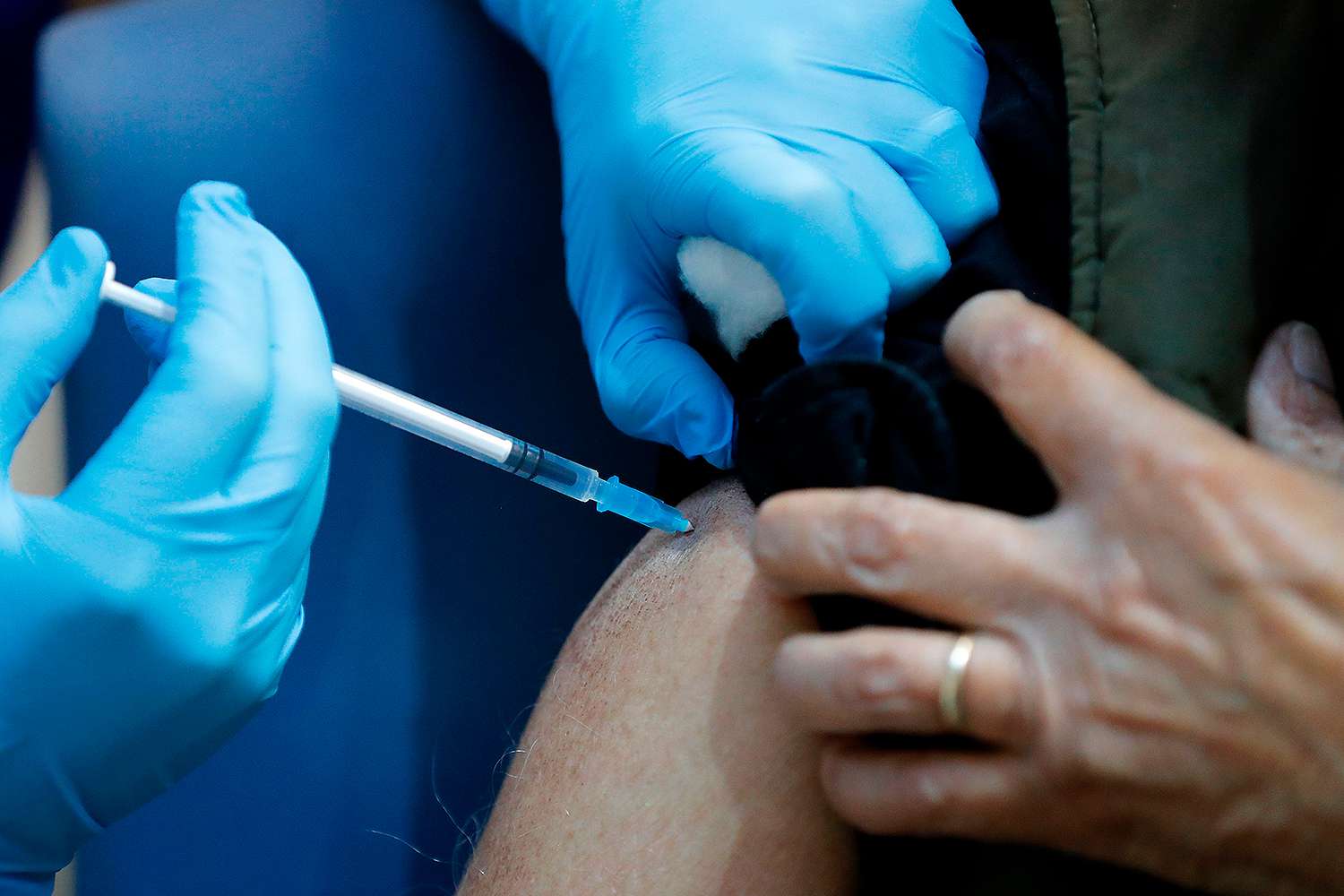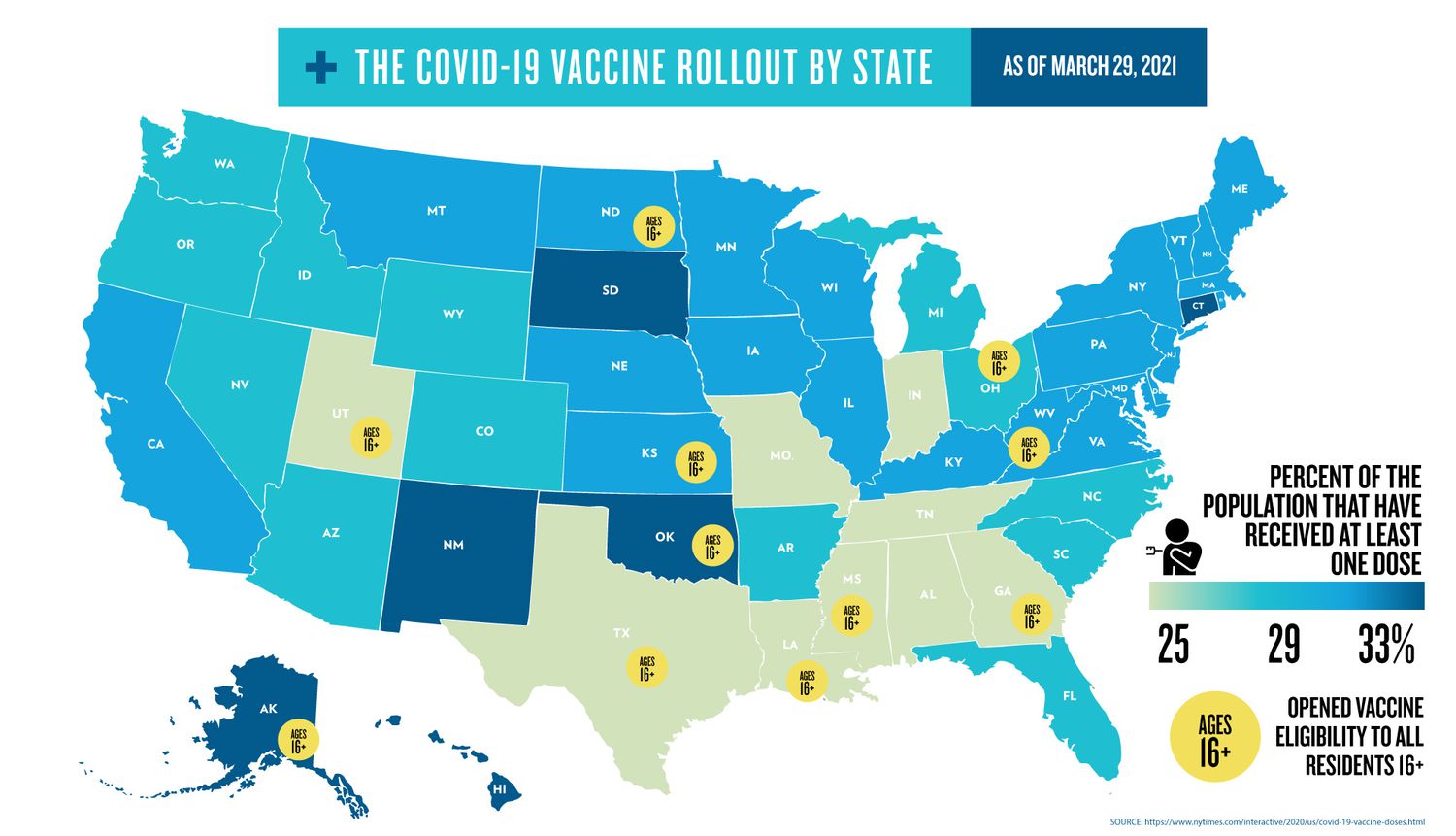
Pfizer and Moderna's vaccines are "highly effective" at reducing the risk of infection from COVID-19, according to the first large study of how Americans who have received a vaccine have fared in the U.S. outside of a clinical trial.
In a Centers for Disease Control study of just under 4,000 heath care workers, police, firefighters and other essential workers who received one of the two mRNA vaccines between Dec. 14 and March 13, the risk of infection went down by 90% two weeks or more after they received their second dose. Even the first dose alone provided significant protection, reducing the risk of infection by 80% two weeks after inoculation.
The study results are confirmation that the vaccines are effective against COVID-19 and provide optimism that as more Americans get vaccinated, the pandemic will end.
"These findings should offer hope to the millions of Americans receiving COVID-19 vaccines each day and to those who will have the opportunity to roll up their sleeves and get vaccinated in the weeks ahead," said CDC Director Dr. Rochelle P. Walensky in a statement shared with PEOPLE. "The authorized vaccines are the key tool that will help bring an end to this devastating pandemic."
The vaccinated people who were tracked for this study live in eight locations in six states — Arizona, Florida, Minnesota, Oregon, Texas and Utah. Most were vaccinated as the deadly holiday surge picked up in December and January, when millions were infected and more than 3,000 Americans were dying a day from COVID-19.
Yet as that rise in cases was ongoing, of the 2,479 people in the study who were fully vaccinated, just three contracted COVID-19. In the 477 people who had one dose, eight developed the virus. In comparison, the CDC also tracked 994 people who were not vaccinated, and 161 contracted COVID-19. No one in the study died.
"This study shows that our national vaccination efforts are working," Walensky said. "The authorized mRNA COVID-19 vaccines provided early, substantial real-world protection against infection for our nation's health care personnel, first responders, and other frontline essential workers."
Study participants were tested weekly for COVID-19 with nasal swabs for 13 weeks. Around half of the study participants were health care workers, 23% were teachers or other essential workers like grocery store employees and 21% were first responders like firefighters or EMTs.

The study news comes as more states open up their vaccine eligibility. As of March 29, 11 states — Alaska, Georgia, Kansas, Louisiana, Mississippi, North Dakota, Ohio, Oklahoma, Texas, Utah and West Virginia — allow anyone 16 and up to make a vaccine appointment, and several more states, including New York and California, have said that they will do the same by mid-April.
As of March 29, more than a quarter of the U.S. population — 95,015,762 people — have received at least one dose of a COVID-19 vaccine, and 52,614,231 people, or 15.8%, are full vaccinated, according to the CDC.
Source: Read Full Article



